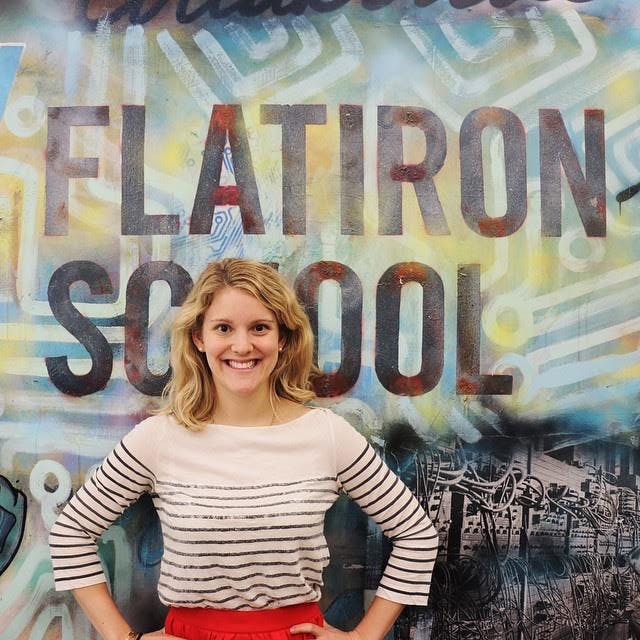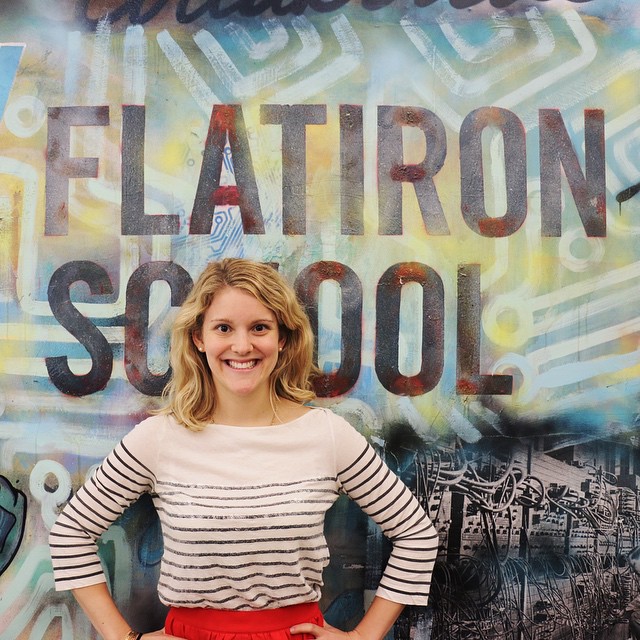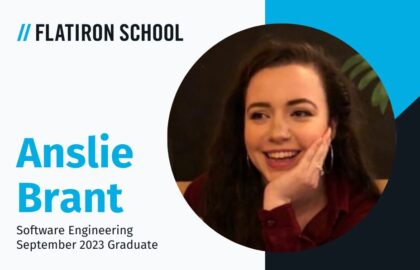From English Major to Dev: Using Your Non-Technical Skills to Switch Careers

Last week, Flatiron School alumna and New York magazine front-end developer Victoria Thevenot and The Muse’s Jody Porowski joined us for our online lecture “Making A Career Switch: How to do it and leverage your non-technical skills to be more successful.” After graduating college with a degree in English, Victoria knew she wanted to work in publishing but […]
Last week, Flatiron School alumna and New York magazine front-end developer Victoria Thevenot and The Muse’s Jody Porowski joined us for our online lecture “Making A Career Switch: How to do it and leverage your non-technical skills to be more successful.”

After graduating college with a degree in English, Victoria knew she wanted to work in publishing but struggled to find a full-time editorial job. She recalls sending out 75 job applications and not hearing a single response. After discovering an interest in programming and learning to code at Flatiron School, Victoria suddenly had another way to pursue her passion. She now works as Lead Ad Developer at New York Magazine. Victoria shared three ways her “non-traditional” background in English actually helped prepare her for a career as a programmer:
- Her writing experience gave her valuable communication skills, which allow her to be one of the only people on her team who can effectively communicate complicated technical topics with non-technical people.
- Her previous passion for the industry gave her a leg up over more “traditional” developer candidates. She recalls applying for a programming role at Time Inc. (who had ignored her when she initially applied for an editorial role) and being told that she was the only applicant who actually knew and read their publications.
- She finds the logical process of writing essays and articles—“manipulating a whole bunch of data and information to prove your thesis”—to be remarkably similar to programming, where it’s essential to break down bigger problems into smaller pieces to solve.
For more on Victoria’s career journey as well as helpful tips for your career search (or switch) from The Muse, you can view the full online lecture below.
Disclaimer: The information in this blog is current as of July 18, 2016. Current policies, offerings, procedures, and programs may differ.



